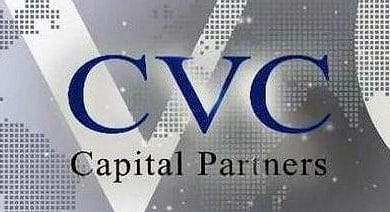
Chiesi Farmaceutici announces the change of its statute, thus becoming a benefit company. With this move, the research-focused pharmaceutical group adopts a new corporate model as required by law 208 of 2015.
 The change of the statute by Chiesi pharmaceuticals is part of a global transformation process of the Group. Also the American branch of the Emilia-based company, Chiesi USA, thanks to the availability of the law, has become a benefit corporation. And other branches such as Brazil, the United Kingdom, Germany, Spain, the Netherlands and France, while not having the law, have provided for an ad hoc statutory integration, with the clarification of the purposes of social and environmental impact.
The change of the statute by Chiesi pharmaceuticals is part of a global transformation process of the Group. Also the American branch of the Emilia-based company, Chiesi USA, thanks to the availability of the law, has become a benefit corporation. And other branches such as Brazil, the United Kingdom, Germany, Spain, the Netherlands and France, while not having the law, have provided for an ad hoc statutory integration, with the clarification of the purposes of social and environmental impact.
The traditional enterprise with neoliberal globalization has undergone an evolution that has led the enterprise itself to detach itself from any criterion other than the immediate creation of surplus value for the shareholders. Everything else takes a back seat: from the needs of suppliers (who are being offered increasingly unfavorable contracts) to workers' rights (which become a simple cost, to be constantly minimized) to relations with local authorities (on which the sword of Damocles of relocations), to outsourcing, even the object produced can take a back seat, favoring the financial aspects. Benefit companies are the expression of a more evolved paradigm: they integrate into their corporate object, in addition to profit objectives, the aim of having a positive impact on society and the biosphere.
A new corporate legal form has been introduced since 2010 as Benefit Corporation in the USA
The legislation in Italy on Benefit companies was approved with Law 208 of 28 December 2015 and entered into force on 1 January 2016. Therefore, from January 2016 benefit companies were introduced in Italy, and this made Italy the first Sovereign State in the world to recognize this type of company for profit. In Italy there are over 200 benefit companies.
 In general, benefit corporations differ from traditional companies in terms of statutory objectives, accountability, and transparency. The purpose of a benefit corporation includes the creation of a public benefit in the community in which it operates, defined as a concrete positive impact on people and the environment. Whoever manages a benefit corporation conducts business with the same authority he would have in a traditional company but – while in a traditional company the shareholders evaluate only the financial performance – here they also evaluate qualitative and quantitative performance, based on the objectives declared by the benefit corporation .
In general, benefit corporations differ from traditional companies in terms of statutory objectives, accountability, and transparency. The purpose of a benefit corporation includes the creation of a public benefit in the community in which it operates, defined as a concrete positive impact on people and the environment. Whoever manages a benefit corporation conducts business with the same authority he would have in a traditional company but – while in a traditional company the shareholders evaluate only the financial performance – here they also evaluate qualitative and quantitative performance, based on the objectives declared by the benefit corporation .
Becoming a benefit corporation brings advantages for all stakeholders of the company, i.e. for customers and suppliers, for talent, for shareholders and management. The benefit corporation form offers legal protection to balance financial and non-financial interests when making decisions, including in the event of a sale, or for publicly traded companies. The legal form of benefit company gives impact investors [ed: investments made in companies, organizations and funds with the intention of generating a measurable and favorable social or environmental impact alongside or in lieu of a financial return] the certainty that a company retains the responsibility to pursue its mission in the future. This can help companies attract impact investment capital. The Benefit Corporation can make the company more attractive to investors as it offers greater legal protections, accountability and transparency in pursuing its mission. Benefit corporations can also speed up due diligence. due diligence: indicates the activity of investigation and study of data and information relating to the object of a negotiation] of investors as they produce an annual Impact report, which describes the activities aimed at creating a common benefit. Benefit Corporations offer an investment opportunity for the rapidly growing, knowledgeable consumer segments that already pay attention to sustainability, organic, fair trade, and short, transparent supply chains. A form of vaccination with respect to the short-term vision that afflicts the stock markets.
64% of investors believe firms are not adequately transparent about non-financial risks, and nearly half of investors rule out certain investments based on non-financial information.” (Ernst & Young, Global Survey of Institutional Investors, 2015).
Related news: Parma, Chiesi Farmaceutici: the construction site of the new headquarters is advancing
Chiesi USA, Inc. Receives Top Employer in the US Certification for 2019
Source: Benefit company





